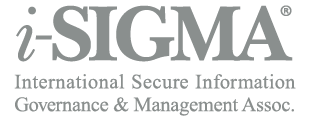Inclusiveness is critical ingredient to NAID’s success
May 16, 2013
In Tuesday’s blog post, I wrote that one of the ingredients to NAID’s success, or any association for that matter, is the appropriate corporate structure and status as a non-profit 501(c)(6). It is the only way to ensure transparency, member control and fiscal propriety. This ingredient is a must for a credible organization. Today, I want to talk about an ingredient for NAID’s success that might not be so clear to some people: inclusiveness.
Ideally, associations are created to serve a purpose. In NAID’s case, it was to increase the outsourcing of information destruction services to reputable service providers. Recently, I wrote about the history of NAID’s founding (to appear in the spring NAIDnews) where I listed the six firms that came together for the first NAID planning meeting. The year was 1992 and there were only a few mobile services. As a result, the companies represented were plant-based for no other reason than I did not know anyone in the mobile destruction business at the time. When the discussion turned to member qualifications, many restrictions were considered. Everyone at the meeting competed with recyclers, which was not used as a term of endearment. During the brainstorming it was suggested that only dedicated secure destruction companies be admitted. Then someone asked a question, “Why should we assume that just because a company operates a recycling company they cannot also offer high quality destruction services?” Just because we knew a lot of bad apples did not mean they were all bad apples. In fact, reputable recyclers who were offering legitimate secure destruction services would surely get behind an industry association. Another representative brought up records storage companies. Sure, there were some who were charging for destruction and then selling the paper without having it shredded. But there were a growing number that were actually providing the service directly. There was even a short-lived discussion about whether NAID should be an association to promote plant-based services in the face of the growing mobile trend. While quickly dismissed, this example shows how new associations can lose their way.
Obviously, none of these exclusion provisions survived and NAID stayed true to its purpose of increasing the awareness of the importance of secure destruction and vendor qualifications. Had the organization been more finely focused on a particular service platform (mobile or plant-based), its credibility in the industry and with customers would have been undermined. Just ask the American Mobile Shredding Association, a short-lived association in the late 1990s.
By not fighting for a particular business model and staying focused on education and standards, NAID avoided the internal industry squabbling that otherwise would have fragmented the industry. Industry professionals agreed then that what we needed education and standards and it remains the same today. As a result the whole industry, with small exceptions, has supported NAID and its mission around the world.

